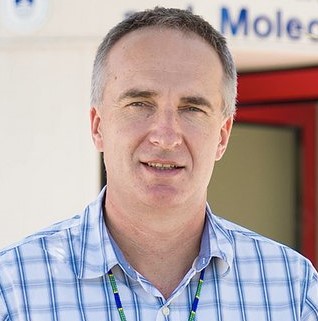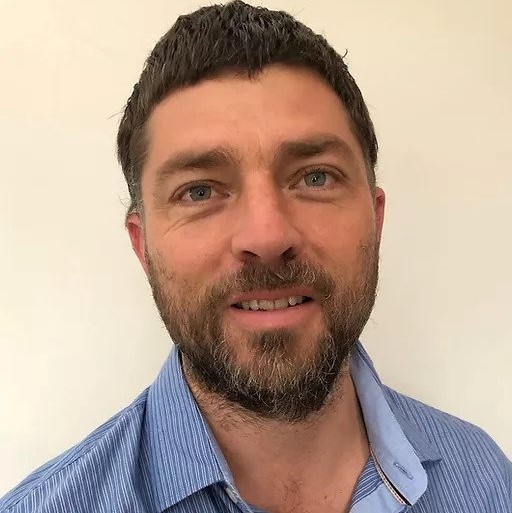report south africa phase i
RePORT South Africa Phase I was a joint venture among the South African Medical Research Council (SAMRC), with support from the South African Department of Science and Technology (DST) and Department of Health (DOH), and with co-funding by the U.S. Division of AIDS (DAIDS), National Institute for Allergy and Infectious Diseases (NIAID) at the National Institutes of Health (NIH), and the Office of AIDS Research (OAR). In 2015 the SAMRC, as part of this initiative, established the SAMRC TB HIV Collaborating Centers, which exclusively competed through a request for application (RFA) process for a RePORT South Africa award. Five sites were awarded and investigators are funded to enroll subjects from their existing parent protocol with compliance to the RePORT International Common Protocol, in which eligible subjects from each parent protocol will be co-enrolled. Enrollment of active TB cases and latently TB infected (LTBI) household contacts of active TB cases in their parent protocols has started. RePORT South Africa also received two awards for Maternal Health and Pediatrics (RePORT Pediatrics).
phase ii
RePORT South Africa Phase II strengthens the global RePORT effort by expanding the RePORT South Africa network to include new prospective cohorts and scientific collaborators in a consortium of 6 South Africa and 4 US institutions; and evaluating a range of biomarker approaches to detect symptomatic and subclinical TB disease.
Screening for entry into Common Protocol Cohorts A (TB patients) and Cohort B (Mtb-exposed individuals) has been identified as an opportunity to test biomarker approaches to detect symptomatic TB, among individuals with symptoms consistent with active disease; and subclinical and incipient TB, among household contacts and others at risk for progression to active disease. Performance of novel proteomic, metabolomic, transcriptomic, and Mtb DNA biomarkers will be tested at 7 research laboratories, using standardized whole blood, serum, urine, sputum and oral swab sample sets, in study populations that include adults, children, and people living with HIV. The most promising biosignatures, benchmarked against established Target Product Profiles for triage, diagnostic and prognostic TB tests, will be evaluated head-to-head. To optimize statistical power for analyses, the project will leverage data and stored samples previously collected under the Common Protocol (RePORT SA1); stored samples from aligned cohorts (GC6, CORTIS, PREDICT); and new samples from ongoing recruitment (RePORT SA2), to generate research outputs during the 3-year grant cycle. Data harmonization across these three sources of data and specimens will lay a solid foundation for future analyses.
administration

Mark Hatherill
SATVI-UCT
South African Tuberculosis Vaccine Initiative, University of Cape Town

Gerhard Walzl
SUN-IRG
Stellenbosch University Immunology Research Group

Timothy Sterling
VUMC
Vanderbilt University Medical Center, USA

Thomas Scriba
SATVI-UCT
South African Tuberculosis Vaccine Initiative, University of Cape Town
research sites & labs
1
satvi
South African Tuberculosis Vaccine Initiative
2
CIDRI Africa
Centre for Infectious Diseases Research in Africa
3
UctLI
University of Cape Town Lung Institute
4
UCTLI Red Cross
University of Cape Town Lung Institute Red Cross Children’s Hospital
5
suN-irg
Stellenbosch University Immunology Research Group
6
ahri
Africa Health Research Institute, Durban, South Africa
7
UP
University of Pretoria
a
vumc
Vanderbilt University, Tennessee, USA
b
csu
Colorado State University
c
bwh
Brigham and Women’s Hospital
d
UW
University of Washington
aims
RePORT South Africa is supported by the South African Medical Research Council (SAMRC) with a Central Biorepository situated in SUN BiOS in Tygerberg and Central Data Management Center situated in Johannesburg. The biorepository and data management centers will work together to synchronize sample collection and data across the South Africa consortium.
aim 1
Expand and strengthen the RePORT South Africa consortium
The existing network of experienced, multi-disciplinary RePORT South Africa investigators will continue to recruit prospective cohorts using standardized data and sample collection methods described in the RePORT Common Protocol and will collaborate with international RePORT consortia in observational TB research, supplemented by 2 new South Africa institutions and 3 new US laboratories with complementary TB biomarker capacity.
aim 2
Establish a central RePORT South Africa Biorepository and harmonized central Data Center
Participant samples and data already collected through the RePORT Common Protocol, through existing large cohorts aligned to the Common Protocol (GC6, CORTIS, PREDICT), and through future RePORT Common Protocol recruitment, will be harmonized using RePORT International data standards. The existing PHRU Data Center will continue its mandate; and the Vanderbilt team will facilitate data harmonization across the South Africa study sites and with RePORT cohorts in other countries. A new central Biorepository will be established at Stellenbosch University for storage of prospectively collected samples.
aim 3
Evaluate tests for diagnosis and triage of symptomatic active TB disease
Candidate biosignatures will be evaluated in symptomatic adults and children, with and without HIV-coinfection, and in HIV-exposed uninfected (HU) children. We will perform head-to-head comparisons of the most promising biomarkers in symptomatic patients at screening for entry into RePORT Cohort A.
aim 4
Evaluate tests to identify individuals with undiagnosed subclinical and incipient TB disease
Candidate biosignatures will be evaluated in adults with household TB exposure and other risk factors for progression to disease. Promising biomarkers identified for diagnosis of symptomatic TB in Aim 3 will also be tested for detection of microbiologically-confirmed, subclinical (asymptomatic) TB; and progression from incipient to active TB disease. We will perform head-to-head comparisons of the optimal diagnostic biomarkers in individuals with household TB exposure and other risk factors at screening into RePORT Cohort B.
funding
RePORT South Africa is supported by the South African Medical Research Council (SAMRC) and CRDF Global.


